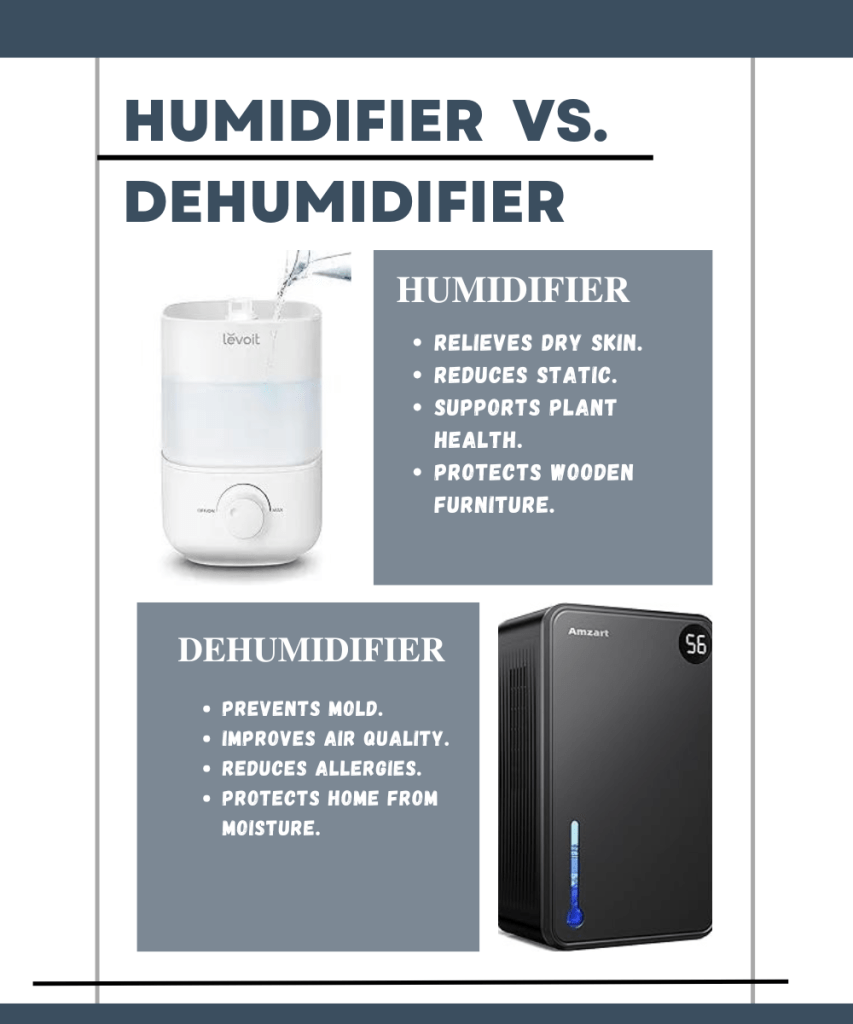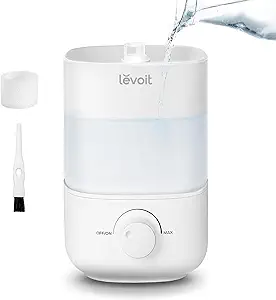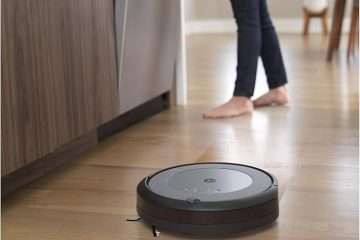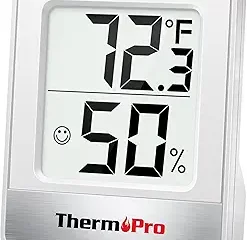Maintaining the right humidity level in your home is essential for both comfort and health, but it often raises the question—do you need a humidifier or a dehumidifier? Whether you’re trying to combat dry air in the winter or muggy conditions in the summer, controlling your indoor environment can make a big difference. In this article, we’ll break down the pros and cons of each device, how they work, and when to use them. We’ll also dive into how each impacts babies, allergies, and provide some real-life insights to help you decide which one fits your needs best.

Table of Contents
ToggleWhat is a Humidifier?
A humidifier adds moisture to the air, which is crucial when the environment is too dry, particularly in winter or arid regions. If you’ve ever experienced dry skin, a scratchy throat, or static electricity shocks in your home, chances are you could benefit from one.
Humidifiers come in various types, but their primary purpose is the same—raising the moisture level in your space. Cool mist humidifiers use ultrasonic vibrations to disperse water droplets into the air, while warm mist humidifiers heat water before releasing it as steam. Both types can help with respiratory discomfort, dry skin, and even your houseplants, which also thrive in the added humidity.

What is a Dehumidifier?
On the flip side, a dehumidifier removes excess moisture from the air, helping to keep indoor air dry and preventing issues like mold growth. If your home feels sticky in the summer or you notice condensation on your windows, a dehumidifier may be your best friend.
Dehumidifiers work by drawing in humid air, cooling it to remove moisture, and then releasing the drier air back into your home. They are especially useful in damp basements, bathrooms, and laundry rooms, where moisture tends to accumulate. You’ll find two main types: desiccant, which uses chemicals to absorb moisture, and refrigerant, which cools the air to condense moisture.

Humidifier vs. Dehumidifier: Key Differences
While both devices manage humidity levels, humidifiers and dehumidifiers serve opposite purposes, and choosing between them depends on the specific conditions in your home. A humidifier adds moisture when the air is too dry, while a dehumidifier removes moisture when the air is too damp.
For instance, a humidifier is ideal for use during the winter when cold air dries out your home, while a dehumidifier is best suited for summer or in rooms like the basement, where excess humidity is common. Both devices improve air quality, but they target different problems.
Using a Humidifier in Winter
In my personal experience, I found a humidifier invaluable during the winter months when indoor air became incredibly dry, leading to chapped lips, itchy skin, and even nosebleeds. After setting up a cool mist humidifier in my bedroom, I noticed an immediate improvement in the air quality.
The constant dry cough that had been bothering me disappeared within days. I was able to sleep better at night, and even my skin seemed to thank me for the extra moisture. “The relief was almost instant once I started using the humidifier, especially at night,” I recall thinking. It’s a simple yet highly effective solution for winter dryness.
Using a Dehumidifier in Summer
Living in a humid region, a dehumidifier became a must-have during summer when the air felt heavy and sticky. I remember walking into my home after a particularly rainy day, and the air inside felt just as muggy as it did outside.
After setting up a dehumidifier, it only took a few hours for the air to feel noticeably lighter and fresher. My clothes dried faster, the musty smell in the basement disappeared, and overall, the house felt more comfortable. “After just a few hours of use, the air felt lighter and more breathable,” I observed, realizing how much of an impact a dehumidifier can have.
Humidifier vs. Dehumidifier for Babies: Which One is Better?
For parents, the choice between a humidifier and dehumidifier becomes even more critical, as maintaining the right environment can directly affect a baby’s health. Dry air can irritate a baby’s sensitive skin and respiratory system, making a humidifier an excellent tool during the winter months.
A humidifier can also help ease colds and congestion in little ones. I found that when my child was battling a cold, the humidifier seemed to ease their breathing at night, allowing them to sleep more peacefully. On the other hand, a dehumidifier is helpful in summer or in rooms prone to mold, ensuring your baby isn’t exposed to damp conditions. In my case, I’ve used both devices, depending on the season, and each served its purpose perfectly.
Humidifier vs. Dehumidifier for Allergies: What to Consider
Allergy sufferers often face the dilemma of choosing between a humidifier and dehumidifier to alleviate their symptoms, but the right device depends on the cause of the allergies. If dry air irritates your nasal passages or exacerbates respiratory issues, a humidifier can provide relief by keeping your airways moist.
However, if you’re allergic to dust mites, mold, or mildew, a dehumidifier is more effective at reducing these allergens. Personally, I’ve battled seasonal allergies, and while a humidifier helped during the winter, the dehumidifier made a significant difference in reducing my allergy triggers, especially mold in the damp summer months. “The dehumidifier made a significant difference in reducing my allergy triggers,” I’ve noticed, especially after using it in the basement.
When Should You Use Both?
There are situations where using both a humidifier and a dehumidifier at different times of the year can be beneficial. For instance, in the winter, a humidifier helps counteract dry, heated air, while in the summer, a dehumidifier combats the heavy humidity.
In rooms like the basement or even a baby’s nursery, where humidity levels can fluctuate, both devices might be needed. After using a humidifier in my baby’s room during the colder months and switching to a dehumidifier during the humid summer, I realized that having both on hand can make all the difference in maintaining a comfortable and healthy home.
Maintenance and Costs: Which is More Practical?
Both humidifiers and dehumidifiers require regular maintenance to function effectively, but the costs and efforts differ between the two. Humidifiers need to be cleaned regularly to prevent the buildup of mold and bacteria, especially in the water tank.
In contrast, dehumidifiers require emptying the water tank and occasional filter cleaning, but they generally need less frequent attention. Cleaning my humidifier regularly was necessary to prevent mold buildup, but the dehumidifier needed less frequent attention, and overall, its upkeep was easier.
Final Verdict: Which One is Right for You?
Ultimately, whether you choose a humidifier or dehumidifier depends on your specific needs and living conditions. If dry air is your primary concern, especially during the winter, a humidifier is a good choice. However, if you’re battling excess moisture, particularly in the summer or in humid regions, a dehumidifier is the way to go.
For me, the humidifier became a winter staple, while the dehumidifier kept my home comfortable during humid summers. Each device plays its role perfectly depending on the season, and both are essential tools for maintaining a healthy and comfortable living space.
Choose Wisely for a Healthier Home
Whether you need a humidifier or a dehumidifier, the right device can significantly improve your indoor air quality and comfort, ensuring a healthier living space for you and your family. Take time to assess the conditions in your home and choose the one that best fits your needs—your health and well-being will thank you for it.
- The Best Humidity Level for Tropical Plants: A Complete Guide for Thriving Greens - November 21, 2024
- Can the Roomba Combo i5+ Function as Both a Vacuum and a Mop? - November 16, 2024
- Thermopro tp49 Digital Hygrometer Review: Comparing Top Competitors - November 7, 2024

